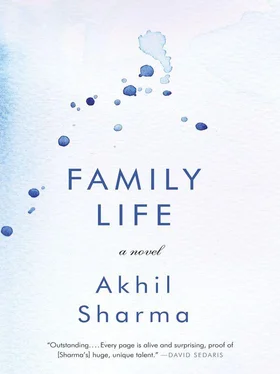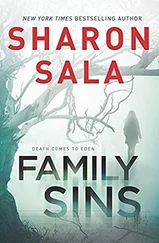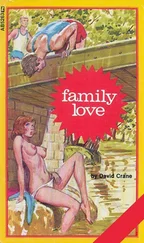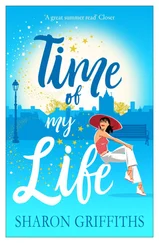AROUND NOON THE next day, the phone rang. It was my father. He had checked himself into Bellevue Hospital, on the East Side of Manhattan.
After we signed ourselves in at the hospital’s front desk, my mother and I used a photocopied map to guide ourselves through the long halls, across the lobbies of what had once been separate buildings. The lobbies resembled empty marble lagoons or, if there were chairs there, waiting areas in airports.
We came to a white metal door. Next to this, on the wall, was a small button with a sign beside it: Press for Admittance. My mother pushed it.
A moment later, through a window in the door, we saw a Chinese woman in a nurse’s uniform approach. The door swung open, and the nurse, who was my mother’s height, was smiling and cheerful. She led us in.
As we walked past offices, she said, “Your husband is very excited to see you. Did you bring any soda?”
“No,” my mother answered.
“Some of the patients are diabetic, and so we don’t let soda in.”
At the end of the corridor was a banner of colorful Chinese characters. As we reached the banner, I saw a man in blue pajamas walking toward us. There was something funny about the pajamas. They were stiff. The man had on an undershirt beneath the blue pajama top. I suddenly realized that the pajamas were made of paper. I was examining them when I realized the man was my father. He was smiling. I became frightened at not having recognized him. To not have recognized him made me feel like I had lost him.
“I’m glad you came,” he said. “Do you want coffee?” He kept smiling. His eyes were warm and he looked excited.
My mother began crying.
My father started leading us away from the hall that we had come down. The nurse stayed behind. “I’ll explain. The news is good. I’m so glad you came.”
We arrived at a doorway on the right. My father pushed open the door. He kept talking and smiling. “I checked myself in yesterday. I need help, Shuba. My insurance is wonderful. I could be here for a month and it would cost only four hundred and fifty dollars.”
The door opened into a lounge that smelled of burnt coffee. It had three round tables with chairs around them. One of the tables was occupied by a young Chinese woman arguing loudly in Chinese with a small gray-haired couple that looked like her parents. There was a TV bolted to the corner of the ceiling playing Soul Train .
My father led us to an empty table. We seated ourselves. Once we were sitting, my father turned toward me. “Most of the people here are Chinese. This is the Chinese ward.”
As he spoke, I had the sense that one day I would look back on this moment and think that until then, everything was fine.
“Is there an Indian ward?”
“No.”
“Why do they have a Chinese ward?”
“There are a lot of Chinese in New York.”
My father glanced at my mother. “Do you want coffee?”
Looking at her lap, holding a handkerchief to her nose, she shook her head no.
My father turned back to me. “I have to stay here for a month,” he said. “This is good. The longer I stay, the better.” I understood that he was saying these things for my mother to hear.
“There are good doctors here,” he said. “The nurses are very good. This is a common problem, this drinking thing.” He was smiling and speaking confidently, and to me, this confidence made him seem delusional, like someone confidently saying things that are obviously untrue. “All the time people come into this hospital and stop drinking.”
I looked at my father’s eager face and felt full of love. I wanted to kiss him. He had a hand on one of his knees, and I wanted to take it and kiss it.
“In one month I will be better,” he said.
My mother kept her head down, her hands over her face.
My father said, “I have doctors. I have psychologists. These Americans are experts. They know A to Z.”
I examined his face. He was smiling. The more he spoke, the more I had the sense that I was losing him, that he was somehow fading away right before me.
My mother and I took the train to New York several times a week. Passing through the marshes covered in snow, I would have an aching sense of nostalgia. I was convinced that things would get worse and that one day I would look back on this period with longing.
My father’s room had green walls and smelled of sweat and unwashed clothes. On the floor, inside the doorway and leading into the room, was a wide dark streak. When we visited him, I liked the door to be closed, for us to be hidden. My mother appeared to feel the same way. We would close the door and still speak softly, shyly.
During these days, I realized how much my mother cared for my father. Once, as he lay in bed, she sat beside him, her chin on her fist, and looked at him so intently that she seemed to be memorizing him. This image of love stayed with me for days. It flickered inside me like a shiny bit of glass flashing from the bottom of a stream.
There were group counseling sessions for addicts and their families. These were in the main section of Bellevue and not in the Chinese ward. The Chinese ward, I learned, was for the mentally ill. The first session I went to was in a lounge that had maybe thirty people. Most of these were milling around in the back near the coffee pots and the powdered milk. About half of them were in blue paper pajamas. Some of the patients were seated and were so medicated they appeared to be dozing. The family members looked tired, unhappy. Unlike the patients, they didn’t talk to each other. My parents and I sat to the side of the room, our backs to a window. Everybody except for us and one Chinese man and his wife was white or black or Hispanic. I was embarrassed to be the same as these people. The counselor, a short, broad-shouldered black man with a beard and a knit hat, called out, “Brothers, sisters, we’re going to start.”
He stood in the front of the room and spoke in a lolling accented voice for ten or fifteen minutes about how addiction was a disease. He said that one could not be cured of it, that one could not drink alcohol for thirty years and that if one began doing so again, it would be like the day one had stopped. He said that addiction was a danger against which one had to always be on guard. My father kept nodding. He had said all this and also said that now that he knew these things, he was going to be fine.
To me, it seemed very American to call drinking a disease and therefore avoid responsibility.
“Hungry, angry, lonely, tired. HALT. Watch out for these. But an addict will use when he is happy. He’ll use when he is down.”
The counselor finished speaking. He invited people from the audience to talk.
Mostly it was the alcoholics who raised their hands. A young woman spoke up. She was almost crying. “I came in on Tuesday and I don’t remember anything till yesterday. I don’t remember. What happened? Nobody will tell me. What happened?” Her voice rose. “I am diabetic. I didn’t have my medicine. I don’t remember, and nobody will tell me.”
Some of the alcoholics who spoke appeared to like the sound of their own voices. An elderly black man with gray hair said, “Every bottle should come with a warning: ‘This bottle may cause you to lose your job. This bottle may cause you to get a divorce. This bottle may cause you to become homeless.’” He nodded in a pleased way at his own words. “I am sixty-four, and I know what day they serve cauliflower at St. Luke’s, what day Bellevue has apple pie, what day ACI has turkey breast.” The man was wearing paper booties with the front part scissored open, and his toenails, which were thick and black, curved over his toes.
My mother and I sat quietly watching, my mother holding a brown purse in her lap. To me, the confidence of the alcoholics was like the confidence that my father had shown when he said he would be all right.
Читать дальше












